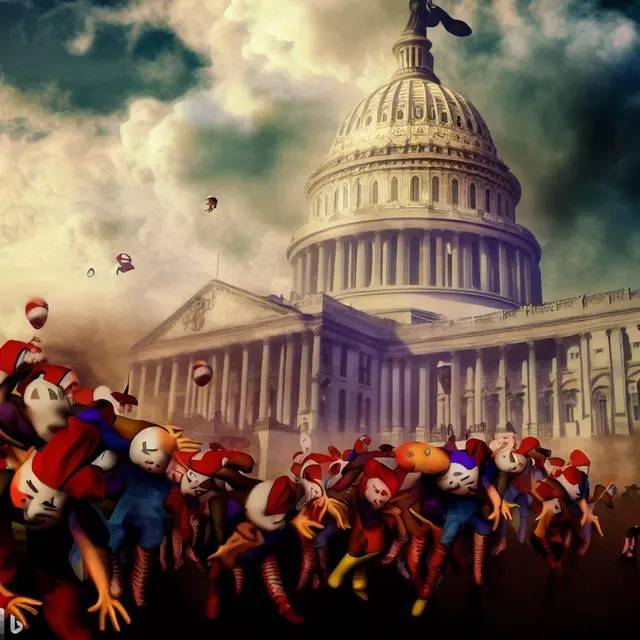
Aug 04, 2023 • Economics
When Chaos Reigns: The January 6th US Capitol Caper's Unintended Economic Comedy
An Unconventional Take on How One Fateful Day Unveiled Economic 'Surprises' Amidst the Chaos

Ah, the unforgettable January 6th, 2021—when the US Capitol turned into an unexpected stage for an economic sitcom that left economists scratching their heads and markets doing the Macarena. Who knew a bunch of determined "tourists" could inadvertently rewrite the economic script? Welcome to the Capitol attack, where political turmoil met economic eye-rolls in a comedy of errors that even Shakespeare might've found amusing.
In the world of finance, nothing gets hearts racing like a rollercoaster market. The S&P 500 and Dow Jones Industrial Average decided to join the "Let's Dance with Democracy" party, showcasing a flair for interpretive dance as they dipped and twirled in response to the Capitol caper. Because what better way to demonstrate the harmony between political unrest and economic unpredictability, right?
Businesses, gather 'round! The Capitol chaos brought us the ultimate game of "Economic Truth or Dare." Suddenly, investment decisions became a high-stakes round of poker, with CEOs asking, "Should we bet on stability, or is uncertainty the new black?" As the attack threw a curveball at the business world, even the most seasoned executives found themselves playing a nerve-wracking game of economic roulette.
Ah, perception—truly the art of economic wizardry. The attack had an unintended magical effect, transforming the image of the United States from a stable democracy to a nation of perpetual reality TV drama. It's like turning the tourism dial from "Let's Explore" to "Let's Watch from Afar." The global perception of the US shifted from the land of the free to the land of—wait for it—quirky political shenanigans.
Let's talk societal vibes. The Capitol escapade inadvertently gifted workplaces with a new game: "Guess the Polarizing Water Cooler Topic." It turns out that a divided society makes for an exhilarating (and by exhilarating, we mean exhausting) experiment in workplace dynamics. Think of it as a crash course in productivity disruption, courtesy of the unexpected Capitol comedy show.
Now, legislative agendas and economic policies—those charming twins. The attack served up a surprise twist, transforming the halls of power into a modern-day sitcom writers' room. Economic initiatives suddenly played a game of musical chairs, as priorities shuffled and timelines waltzed to a new rhythm. Infrastructure plans and economic policy proposals learned the tango of political turbulence, leaving everyone wondering, "Who's leading this dance?"
Peering into the crystal ball, the Capitol comedy offers a sneak peek into long-term effects with a dash of drama. The attack may have just kick-started a sequel: "The Bipartisan Bicker," where economic solutions face their arch-nemesis, political polarization. Taxation reforms, trade talks, and grand economic schemes are caught in the crossfire of the political melodrama—a plot twist that even Hollywood would find too juicy to resist.
In a twist of fate, the January 6th Capitol caper turned into an economic sitcom for the ages. Markets danced, businesses pondered, perception spun its magic, workplaces played referee, and policies tangoed in unforeseen directions. Amidst the laughter (and head-scratching), one thing is clear: the comedy of the Capitol reminds us that a nation's economic narrative is intricately woven into its political tapestry. As the curtains rise on the continuing saga, we can only hope for fewer surprises and a bit more economic harmony in the sequel.




